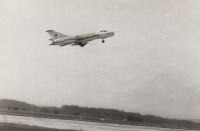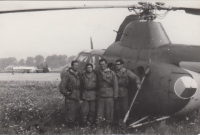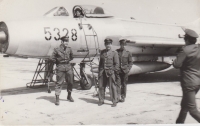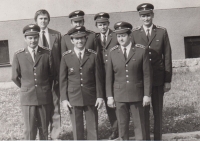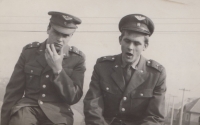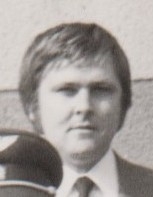They put up a banner saying “Rusi iditě domoj” (“Russians go home”) and the Soviets shot it down at them with an anti-aircraft gun

Download image
Radko Veverka was born on March 3, 1947 in Rýmařov as the elder of two sons to parents Miroslav and Anna. His father is said to have joined the resistance during the Second World War. In 1946, as a forest engineer, he was called to Rýmařov to manage the former Liechtenstein forests. The family stayed in this town until 1950, when they moved to Olomouc. Since childhood, Radko Veverka has been drawn to aeroplanes. Although he trained as a locksmith, in 1965 he was accepted as an aircraft mechanic in the Czechoslovak People’s Army. After completing training and flying school in Košice, he was assigned to the air base in Náměšť nad Oslavou to the 20th Fighter-Bomber Aviation Regiment. There, too, on the morning of August 21, 1968, he experienced the occupation of the airport by Soviet paratroopers during the invasion of Warsaw Pact troops. In personnel reviews, he then refused to label the occupation as friendly aid, and he was fired from the army in 1970. He was then under the control of the StB (state security) and found it very difficult to find a job. He only got a job at the state-owned enterprise Vodovody a kanalizace Olomouc (Water supply and sewers), where he stayed for 23 years. From 2000 until his retirement, he worked at the aircraft repair shop in Kbely as a helicopter service technician. After the fall of the communist regime, he ran several times for the ČSSD (Czech Social Democratic Party) for the city council of Olomouc. In 2020, he lived in Olomouc.
